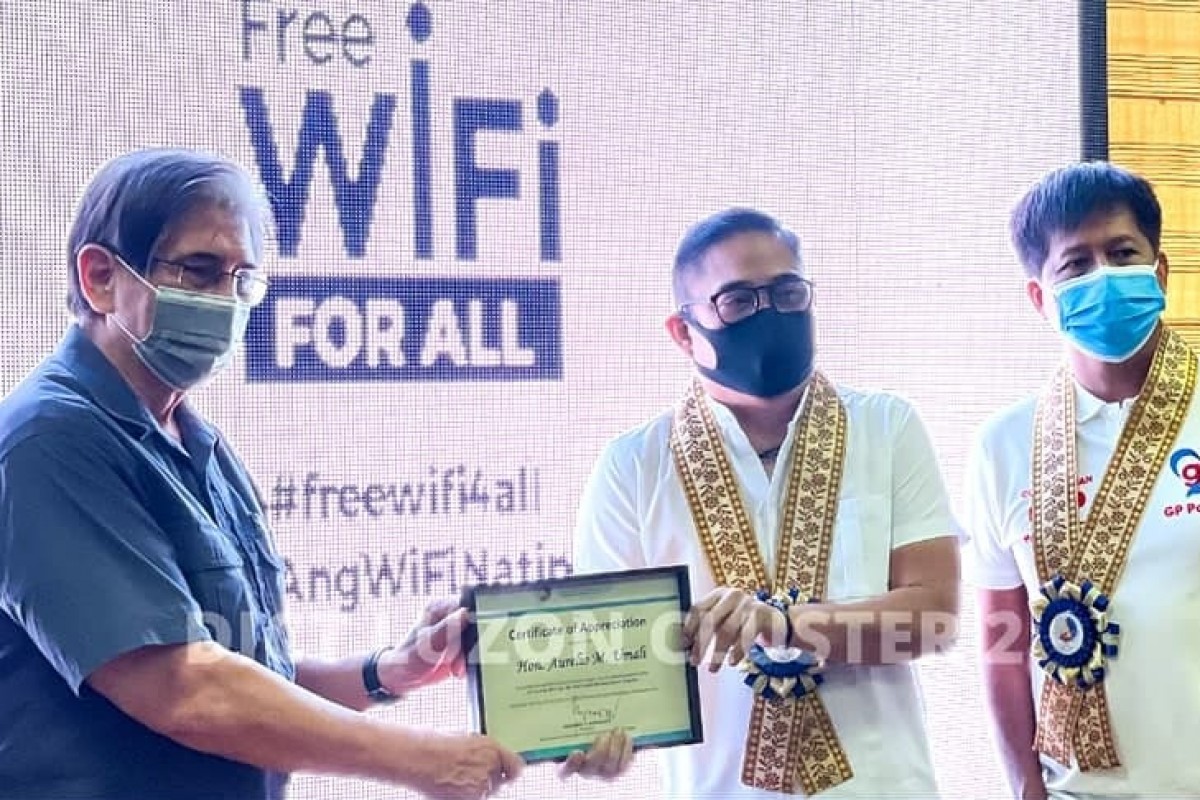
The Free Wi-Fi for All Program of the Department of Information and Communications Technology (DICT) activated 163 Internet hotspots in 44 locations during the province-wide launching event in Nueva Ecija.
The majority of these sites are located in Cabanatuan City and Palayan City, while the remaining sites are built in various cities in the province. The Wi-Fi sites are already available for public use and can be accessed 24/7.
The launching aligns with the continued and intensified effort of the Department to meet the country’s increased need for better and more reliable connectivity.
“Ang Internet connectivity ay isang mahalagang rekurso sa ating pamumuhay sa new normal. Habang patuloy ang paglaban ng bansa sa mga problemang dulot ng pandemya na COVID-19, ang Internet connectivity ay isang solusyon upang tayo ay makapagtrabaho, makapag-aral, makipag-usap, at lumahok sa lipunan,” Secretary Gregorio “Gringo” B. Honasan II explained.
“Gayunpaman, ang Internet connectivity ay nananatiling isang malaking hamon sa mga malalayong lugar, partikular na sa ating mga kanayunan. Kaya naman, bilang tugon na rin sa direktiba ni Pangulong Rodrigo Roa Duterte na magbigay ng libreng Internet connectivity sa bansa, mas pinalakas ng DICT ang implementasyon ng Free Wi-Fi for All Program,” Honasan added.
[Internet connectivity is an important resource for life in the new normal. As the country continues to resolve the problems caused by the COVID-19 pandemic, Internet connectivity is a vital solution for the continuation of our work, education, communication, and participation in public life.]
[However, Internet connectivity remains a major challenge in remote areas, particularly in our rural locations and the countryside. Therefore, in response to President Rodrigo Roa Duterte's directive to provide free Internet connectivity in the country, the DICT has further strengthened the implementation of our Free Wi-Fi for All Program.]
The initiative was spearheaded by the DICT’s Luzon Cluster 2 led by Director Reynaldo T. Sy, in partnership with the Provincial Government of Nueva Ecija under the leadership of Governor Aurelio M. Umali. Congressman GP Padiernos also expressed his support for the province-wide initiative. During the event, Governor Umali emphasized the importance of the partnership between the DICT and the local government of Nueva Ecija.
“Nueva Ecija is really lucky sapagkat nangarap tayo: ang mga munisipyo ay maging smart municipality, ang mga city ay maging smart city, at ang probinsiya ay maging smart province — and this is where the synergy between the DICT and the local government of Nueva Ecija will play a major role,” Governor Umali stated.
(Nueva Ecija is really lucky because we have great aspirations: for our municipalities to turn into a smart municipality, for our cities to be considered a smart city, at for our provinces to be named as a smart province — and this is where the synergy between the DICT and the local government of Nueva Ecija will play a major role.)
Secretary Honasan also highlighted DICT’s efforts to expand the implementation of its Free Wi-Fi for All Program and the necessity of reaching even the most geographically isolated and disadvantaged areas (GIDA sites).
“Ang connectivity ay napakahalaga sa pamumuhay natin, at dahil dito yung pinakamaliit, pinakamahirap, at pinakamalayo, yun ang tutumbukin natin. Pag naikonek natin yan, diyan magsisimula ang economic activity. Parang riles ng tren, it’s the connected economic activity on both sides na magbibigay ng kaunlaran sa atin,” Honasan asserted.
[Connectivity is a very important aspect of our lives, and because of this, we aim to connect the smallest, the poorest, and the farthest locations in the country to the Internet. When we succeed in doing so, those locations will be the starting point of economic activity. Just like a railroad, it’s the connected economic activity on both sides that will give us prosperity.]
Since the passage of Republic Act No. 10929 in 2017 until June 24 this year, the DICT has established 10,311 sites nationwide. These sites continue to serve millions of Filipinos, including students, workers, teachers, medical frontliners, and public servants.



